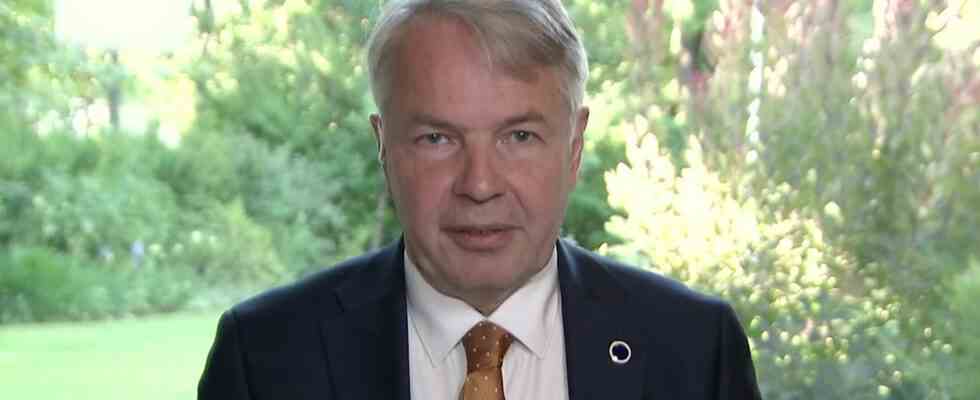interview
Status: 06/29/2022 11:09 a.m
Has Finland gone too far in accommodating Turkey on the issue of extraditions in order to get Turkey’s agreement to join NATO? Finland’s Foreign Minister Haavisto rejects this accusation tagesschau24-Interview clear back.
ARD: Turkey has given up its opposition to its country and Sweden joining NATO. How relieved are you?
Pekka Haavisto: We had very long talks last night. Turkish President Recep Tayyip Erdogan was there, as was Sweden’s Prime Minister Magdalena Andersson and NATO Secretary General Jens Stoltenberg. It was a very difficult conversation. The important thing is that we finally came to an agreement. We addressed problems such as arms exports and the PKK terrorist organization – and in the end we found a solution together with Turkey.
ARD: In your opinion, was that exactly the decisive point for Erdogan to surprisingly give in?
Haavisto: There were many problems that were on the table. In the end, this focused primarily on counter-terrorism – and also Turkey’s will to strengthen cooperation against the PKK, which of course is also a banned organization in Sweden and Finland. It is a terrorist organization and it is of course clear that we strongly condemn its activities.
“We finally came to an agreement,” Pekka Haavisto, Foreign Minister of Finland, on the agreement with Turkey on his country’s NATO accession
tagesschau24 10:00 a.m., 29.6.2022
“More information sharing”
ARD: You are now being accused of being too accommodating to Turkey. For example, they want to examine the extradition of people who are suspected of being terrorists in Turkey. And we know how the country treats political prisoners. Was the deal actually worth that price?
Haavisto: We talked a lot about extradition. There have already been many extraditions to Turkey from the Scandinavian countries and we have agreed that we will strengthen our cooperation, that we will exchange more information between our authorities. But in terms of our legislation, we are not changing anything – and that is also very clear from the memorandum.
ARD: In their history they have had to make painful experiences, not least in the so-called Winter War of 1939-1940, when Soviet troops attacked Finland out of nowhere. So how has Finland looked at its big neighbor since then?
Haavisto: At the moment, of course, we are very concerned about Russia’s war against Ukraine. We share 1300 kilometers of common borders with Russia. For over 100 years we have tried to keep this border peaceful. If we look to the next 100 years, we want to continue to keep the border peaceful. I think that Finland’s membership in NATO will benefit our security and also the European Union.
“Traditionally very strong army in Finland”
ARD: Russian President Vladimir Putin has threatened to station nuclear weapons on the border once Finland joins NATO. How concerned are you that Russia could attack Finland?
Haavisto: One of ours Of course, worrying about the current situation is this conversation about unconventional weapons. The talk in Russia is about nuclear weapons and chemical weapons. Finland traditionally has a very strong army. We’ve got thousands of reservists, new F-35 fighters. But of course people ask what happens when we are threatened with unconventional weapons: How do we react then? How do we defend ourselves in this case? So how do we respond to these hybrid threats and also to the cyber threat? How do we counteract this?
ARD: And what is your answer to that?
Haavisto: Our response, of course, is first and foremost to take charge of our own safety. Our traditional defense is very strong. And if we make military plans in the future together with NATO, then it’s about protecting our territory and protecting all Scandinavian countries. We have also deepened military cooperation with Sweden. And I am very glad that we made this decision together with Sweden to apply for NATO membership. It is very important that we work together bilaterally and on a Scandinavian level.
The interview was conducted by Damla Hekimoglu, tagesschau24. It was translated from English and edited and slightly abridged for the written version. You can find the full-length video interview on this page.

